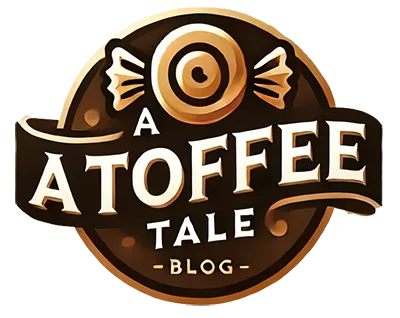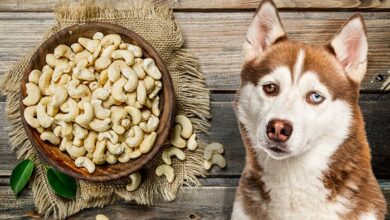Can Dogs Eat Caviar? A Deep Dive into Fish Eggs and Dogs-2024

Can Dogs Eat Caviar? If you’re thinking about treating your dog to this gourmet food, it’s important to know what caviar is. Caviar refers to salt-cured fish eggs, primarily sourced from sturgeon. It holds a luxurious status in culinary traditions worldwide, often enjoyed in small, elegant servings.
However, caviar is high in sodium due to the curing process, which can make it a potentially risky food for dogs. Let’s take a closer look at whether caviar is a safe option for your furry friend!So, let’s explore that- can dogs eat Caviar?
Nutritional Profile of Caviar
When considering can dogs eat caviar, it’s important to understand its nutritional profile. While caviar is often seen as a gourmet delicacy, here are some key nutrients it provides:
1. Omega-3 Fatty Acids
- Health Benefits: Omega-3s are essential fatty acids that support skin, coat, and joint health. They help reduce inflammation and can improve overall well-being.
2. High-Quality Protein
- Muscle Support: Caviar is rich in high-quality protein, which is vital for muscle growth and maintenance. Protein plays a crucial role in your dog’s overall health and energy levels.
3. Vitamins and Minerals
- Vitamins Present: Caviar contains small amounts of vitamins like B12 and minerals such as selenium. However, the quantities are not significant enough to meet your dog’s dietary needs.
While caviar does offer some beneficial nutrients, the potential risks associated with its high sodium content and additives may outweigh these benefits for dogs. Always prioritize dog-safe alternatives that provide essential nutrients without the health risks. If you’re considering adding any new food to your dog’s diet, it’s best to consult with your veterinarian for personalized advice.
Can Dogs Safely Eat Caviar? Can Dogs Eat Caviar?
When it comes to the question of can dogs eat caviar, it’s essential to consider both the potential benefits and the health risks. While caviar is often regarded as a gourmet treat for humans, its suitability for dogs is a different matter altogether.
Small Amounts May Be Safe
- Plain Caviar: In general, small quantities of plain caviar might not pose an immediate threat to your dog. It’s crucial to ensure that the caviar is free from any additives, spices, or flavorings that could be harmful.
- Serving Size: If you decide to offer caviar, keep it as an occasional treat rather than a regular part of your dog’s diet. A tiny spoonful can suffice for a larger dog, while a smaller amount is advisable for tiny breeds.
Risks of High Sodium Content
- Sodium Levels: Caviar is inherently high in sodium due to the curing process, which can lead to several health issues in dogs:
- Dehydration: Excessive sodium can cause your dog to become dehydrated, which may lead to increased thirst and urination.
- Kidney Strain: Dogs with pre-existing kidney conditions may experience worsened symptoms if they consume salty foods like caviar.
- Hypertension: Chronic high sodium intake can lead to high blood pressure, putting additional stress on your dog’s cardiovascular system.
Potential Additives and Preservatives
- Ingredient Awareness: Some caviar products are processed with additives or preservatives that are not suitable for dogs.
- Digestive Issues: These chemicals can lead to gastrointestinal upset, resulting in vomiting, diarrhea, or other digestive problems.
- Allergic Reactions: Certain dogs may have sensitivities or allergies to fish, which can trigger allergic reactions. Symptoms might include itching, hives, or swelling.
Nutritional Considerations
Can Dogs Eat Caviar? While there are some nutrients in caviar, such as omega-3 fatty acids and protein, the benefits may not outweigh the risks, especially given the potential for high sodium and additives.
Nutritional Profile:
- Omega-3 Fatty Acids: These are beneficial for skin, coat, and joint health but are also found in safer alternatives like salmon or sardines.
- High-Quality Protein: Caviar does provide protein, which is essential for muscle maintenance, but dogs can obtain sufficient protein from more suitable sources.
- Vitamins and Minerals: Caviar contains trace amounts of vitamins like B12 and minerals like selenium, but these are not in significant quantities to impact a dog’s overall health.
Can Dogs Eat Caviar? While small amounts of plain caviar may be safe for some dogs, the high sodium content and the potential for harmful additives make it a risky choice for most pets. If you want to treat your dog with fish-based foods, consider safer alternatives that offer similar nutritional benefits without the associated risks. Always consult your veterinarian before introducing new foods into your dog’s diet to ensure their safety and well-being.
Health Risks of Feeding Caviar to Dogs
When it comes to the question can dogs eat caviar, it’s important to be aware of the potential health risks associated with this gourmet treat. While some dogs might enjoy a small taste, several factors can make caviar a less-than-ideal choice for your furry friend.
Sodium Overload
- Dehydration: Caviar is high in sodium, and excessive intake can lead to dehydration. This occurs as your dog’s body tries to balance out the high sodium levels, leading to increased thirst and urination.
- Kidney Strain: Dogs with pre-existing kidney issues are particularly vulnerable. High sodium can worsen their condition and put extra stress on their kidneys.
- Hypertension: Chronic consumption of salty foods like caviar can lead to elevated blood pressure, which can have long-term health implications for your dog.
Allergic Reactions
- Fish Allergies: Just like humans, dogs can have allergies to certain foods, including fish. If your dog is allergic to fish, consuming caviar may trigger a reaction.
- Symptoms to Watch For: Common signs of an allergic reaction include:
- Vomiting
- Diarrhea
- Itching or skin irritations
- Swelling or hives
- Chemical Additives
- Preservatives and Flavorings: Many caviar products contain additives, preservatives, or flavor enhancers that can be harmful to dogs.
- Digestive Upset: These ingredients can lead to gastrointestinal issues such as:
- Vomiting
- Diarrhea
- Stomach cramps
Can Dogs Eat Caviar? While small amounts of plain caviar may not be immediately harmful, the health risks associated with high sodium levels, potential allergic reactions, and harmful additives make it a food to approach with caution. Always consult with your veterinarian before introducing new treats into your dog’s diet, especially those that could pose health risks.
Recognizing Signs of Sensitivity or Overconsumption
If you’re wondering can dogs eat caviar, it’s essential to monitor your dog closely after they consume it. While a small taste might not lead to immediate harm, some dogs can show signs of sensitivity or overconsumption. Being aware of these symptoms can help you act quickly if needed.
Digestive Issues:
- Vomiting: Your dog may vomit shortly after eating caviar, indicating their body is rejecting the food.
- Diarrhea: Loose stools can occur if your dog’s digestive system is upset by the high salt content.
- Excessive Thirst: Increased thirst is a sign that your dog is trying to flush out the excess sodium.
Neurological and General Symptoms:
- Lethargy: If your dog seems unusually tired or lacks energy, it could be a sign of sodium poisoning or other health issues.
- Weakness: A lack of strength or coordination can indicate serious concerns related to high sodium intake.
- Neurological Issues: In severe cases of sodium poisoning, your dog might exhibit confusion, tremors, or seizures.
Allergic Reactions:
- Itching or Hives: Allergic reactions may present as skin irritations, causing your dog to scratch excessively.
- Swelling: Look for swelling in the face, ears, or paws, which may indicate a more severe allergic response.
Can Dogs Eat Caviar? Understanding these signs is crucial for any dog owner considering introducing caviar to their pet’s diet. If you notice any of these symptoms after your dog has eaten caviar, it’s best to consult your veterinarian immediately for guidance and potential treatment options.
Healthier Alternatives to Caviar for Dogs
If you’re asking, can dogs eat caviar, you might want to consider healthier options that provide similar benefits without the associated risks. Caviar can be high in sodium and may contain additives harmful to your dog. Fortunately, there are plenty of nutritious alternatives that can support your dog’s health.
Plain, Cooked Fish:
- Salmon: Rich in omega-3 fatty acids, salmon is great for your dog’s skin and coat. Be sure to cook it thoroughly and avoid seasoning.
- Sardines: These small fish are low in mercury and high in nutrients. Choose sardines packed in water without added salt for a healthy treat.
Fish-Based Dog Treats:
- Look for treats made specifically for dogs that are low in sodium and free from preservatives. These treats can provide similar omega-3 benefits without the risks associated with caviar.
Omega-3 Supplements:
- Consider omega-3 supplements formulated for dogs. These can help promote a healthy coat and skin without the high salt content found in caviar. They are often derived from fish oil or algae, providing a safe way to boost your dog’s nutrition.
Can Dogs Eat Caviar? By opting for these healthier alternatives, you can ensure that your dog receives the nutritional benefits they need without the potential dangers of caviar. Always consult your veterinarian before introducing new foods or supplements into your dog’s diet to ensure they’re safe and suitable for your pet’s individual health needs.




